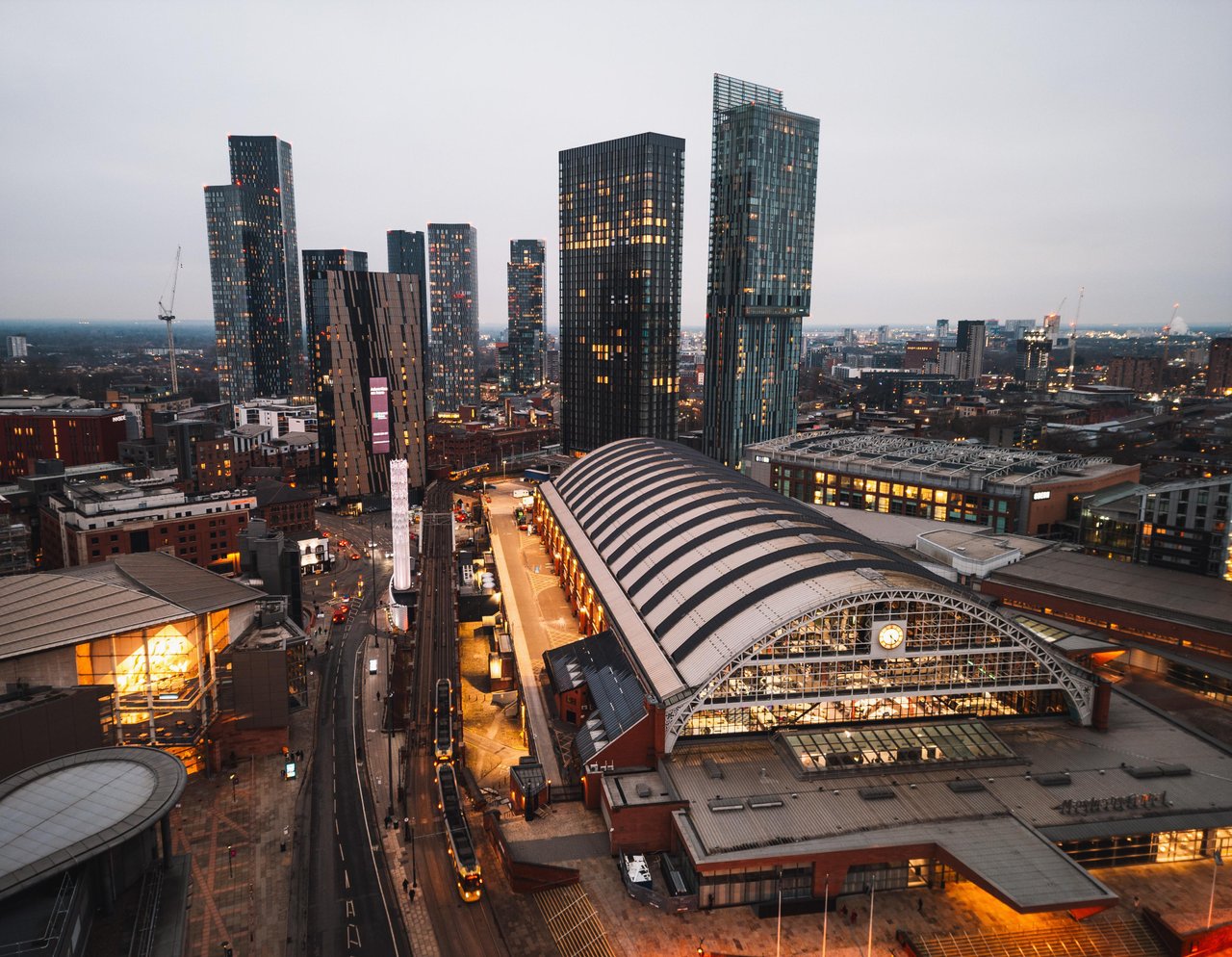This week it was announced that Manchester will be the home of the Government’s new Industrial Strategy – and that could bring a “significant benefit” to the city, business leaders say.
Sir Keir Starmer hopes the ten-year strategy will be a “turning point for Britain’s economy” by cutting electricity costs and supporting industries with growth potential.
The Government aims to cut power costs for UK businesses by up to 25%, through exempting manufacturing firms from many green levies. Energy-intensive firms will see network charges cut, while the plan also suggests speeding up the process for connecting new factories and projects to the energy grid.
In its document “The UK’s Modern Industrial Strategy”, released on Monday, the Government said it wanted to promote growth in city regions including Greater Manchester and Liverpool.
It promises a share of £150m from the new Creative Place Growth Fund to support the creative sector in Greater Manchester, Liverpool City Region, the North East, and West Yorkshire. And it says there will be new Professional and Business Services Hubs in Greater Manchester, Liverpool City Region, and West Yorkshire
The Government also aims to create “a strong, effective, and permanent independent Industrial Strategy Council”, with an expanded secretariat of analysts.
The council, which “will be enshrined in law when parliamentary time allows,” will advise the Government, produce reports on how the strategy is working, and will in time “be able to take advantage of new legal powers to access data and evidence from across government to support its ongoing work.”
And the report says the council will be based in Manchester from 2026, alongside a secondary presence in London, with the aim of building connections to partners, institutions and devolved administrations across the UK.
Leader of the Council Bev Craig welcomes the new strategy that has the potential to create jobs, while attracting new business and supporting growth.
Cllr Bev Craig, Leader of Manchester City Council said:
“Manchester is the fastest-growing UK city and will be at the forefront of creating thousands of new jobs and growing the country’s economy. Finally, we have a Government with a long term national Industrial Strategy focused on attracting investment, making it easier for businesses to grow, protecting jobs and -crucially – backing our plans locally. Having just returned from a Greater Manchester International Trade Mission, we know the difference this makes.
“Manchester already has globally recognised strengths in many of the key priority sectors identified – such as life sciences, professional, legal and business services, creative industries and digital, tech and AI – this will supercharge them even more.
“It’s great to see the Government announce an Industrial Strategy Council to oversee delivery and even better news that Manchester has been chosen as its headquarters. In a changing world, the world’s first industrial city is well-placed to help shape the dynamic industries of the future.”
Chris Fletcher, policy director at Greater Manchester Chamber of Commerce, said: “This has been keenly anticipated and, since the Green Paper last Autumn, businesses and business organisations including the Chamber have been putting forward to Government what is needed to kickstart growth in the UK
“The 10-year strategy laid out in the document clearly sets out a different approach to sector-specific activity and it covers a lot of necessary changes that will be needed in legislation, planning and access to finance if UK business is to succeed over the next decade. The Industrial Strategy brings together elements from the Spending Review and last week’s Infrastructure Strategy and when these are all put together some sense of the scale of what is needed becomes apparent.
“It is a detailed and ambitious plan and we will be going through this is fine detail over the coming days. One big win for Greater Manchester though is confirmation that the Industrial Strategy Council, the body that will be overseeing the delivery of this, will be headquartered in Manchester from 2026. We think this is a significant benefit and will help in the wider delivery of the strategy building on the devolved areas of the country.
“With other strategies to be announced in the coming months such as the Small Business Strategy and legislation such as the Planning and Infrastructure Bill to start its path through Parliament there is still a lot of work to be done by government but at least now there is some sort of path to follow and a bold vision in place.”
Andrew Carter, chief executive of think tank the Centre for Cities, said: “The Industrial Strategy is another welcome sign the Government has chosen to put big city regions at the heart of its plan for broad-based national prosperity. There is no way to restart productivity growth without tackling the underperformance of the UK’s big cities relative to their size. This is the best approach to ensuring economic growth and access to jobs and opportunities in every part of the UK.
“The eight sectors prioritised in the Industrial Strategy are disproportionately located in cities. Roughly 61 per cent of economic activity in those eight sectors is clustered in urban areas.
“The success of the Industrial Strategy hinges on being able to foster innovation in the big cities. To do that, the metro mayors need substantive and sustained investment and support from Government to grow their local economies.”

